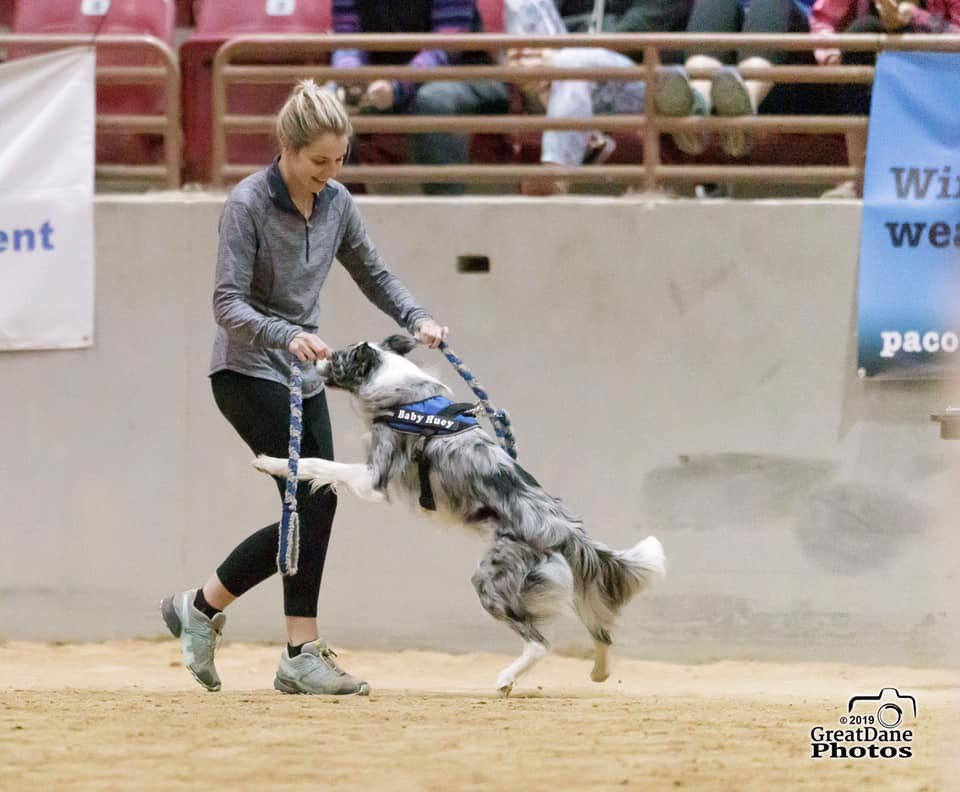When you go to agility classes, or seminars, you will always hear people talking about TIMING. This is a word that comes up in all levels of agility. From novice through World Team competitions. The ELUSIVE TIMING.
I have found that telling a student they are LATE can help them, but I like to pinpoint exactly what is late.
Which is why I drew up with the following diagrams to describe the cues for Extension and Collection.
Let's start with EXTENSION. Extension is the dog not having to make a turn. This can be different for big versus little dogs, so I have included both in diagrams.
Below is a diagram of typical extension for a BIG DOG. Imagine you are looking at two jumps from the side (so the vertical black lines are the two jumps).
The RED LINE is the dog's stride.
- The dog takes jump 1 (first jump on the left) and then lands off 1.
- Takes one stride between 1 and 2 (the jump on the right).
- Then takes off for jump 2, which is the 3rd red line.
